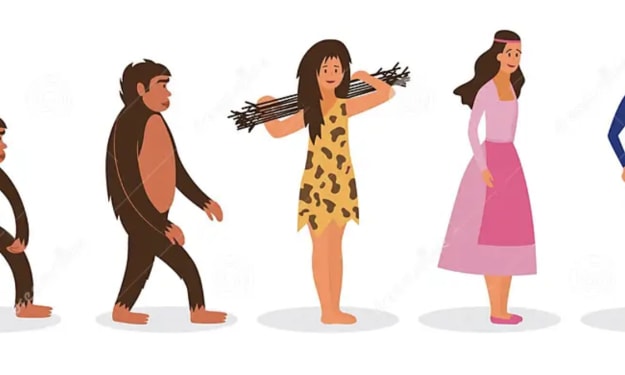Ban on plastic: environment vs economy
Ban on plastic: environment vs economy

This study links the prices of plastic bags with changes in consumer attitudes including support for other environmental policies. A study by the National Center for Policy Analysis states that banning plastic bags used by consumers and stores could hurt home sales and increase sales among stores outside the bagless area.
NCPA interviewed store managers in Los Angeles County where the Thin Film Bag ban came into effect in July 2011. The study also sought to determine whether consumers had changed their shopping habits by increasing their shopping in stores that may still be selling plastic bags. These findings were similar to those from Xiufeng 11's study which concluded that public awareness of the environmental impact of plastic bags could have little or no impact on consumer behavior based on personal debt, resources, and sustainability.
The seller’s idea of a clear reduction of plastic waste was a 4.50-weight ratio that was strictly translated as a contract. Retailers feel that the introduction of plastic law has a balanced impact on the environment. Investigators found in San Francisco that plastic bags accounted for 0.6% of city waste before the site closure.
In the controversy between bans, taxes, and consumer preferences, do not overlook the fact that plastic shopping bags are completely recycled if properly disposed of. According to an international study, about 600 billion plastic bags are used every year and because of their high-quality waste, they end up in rivers or sewers, not only closed but eventually into the sea. Therefore, plastic bags are among the ten major types of garbage found in the oceans and beaches.
Additionally, this ban can be accompanied by ensuring that retailers and major retailers are connected to recycling plastic companies and creating reusable bag storage areas. Finally, the government must train the government and trade unions to take advantage of this ban. The plastic industry is responsible for raising public awareness of responsible use and recycling.
If we can show people that plastic is important, you will not find a piece of plastic waste anywhere if India makes an example by moving away from used plastic once. If the major powers of the world including India, China, the United States, and the EU apply this ban at the political level, it will quickly spread worldwide.
A complete ban on the use of plastics is a very difficult step that we will not be able to afford due to the lack of alternatives. Even if closed, it could lead to the illegal production, use, and disposal of plastic, which could exacerbate the problem because there will be no more rules and regulations to follow as plastic is smuggled and can turn plastic into a black market. be extremely harmful to the environment.
And when we come across reusable bags, we should recycle them, use them again and again. Time to switch to other plastic items by recycling most of the plastic.
While India has promised to ban the use of plastics once in 2022, some countries and companies are taking effective measures to reduce plastic pollution and its effects. In this century, we cannot afford to pay for any environmental benefits, but we can ensure that the use of plastics is minimal to the individual while at the same time working on other green alternatives at the industrial and national levels.
The first step is to tighten the recycling rules and prevent the use of substandard plastics; then we can focus on the greenways that replace plastic without much inconvenience to consumers.
There are many different types of plastics each requiring its own recycling process. Most companies still distribute personalized plastic bags that serve as company logo items, contact details, etc.
Worldwide, there is a growing trend toward restricting and restricting the use of plastic bags. By mid-2018, more than 127 countries/regions had enacted laws that restrict their use, a number that is three times the number of decades. The latest lawyer is Jakarta, Indonesia's capital, which ranks second in the number of plastic disposals per person. On July 1, Jakarta and Japan banned the use of free plastic bags at the payment point.
And more than 80 cities in Massachusetts - more than a third of the state population - have closed plastic bags. When Cambridge introduced the ban on plastic bags throughout the city in 2016, it became the largest city in Massachusetts to do so. Maharashtra has joined a growing list of countries and regions that have imposed restrictions on the use of plastics for environmental reasons.
One of the discussions about the ban on various plastic products, including discarded cutting materials, bags, thermo-wheelchair (polystyrene), was the economic cost of banning manufacturers who said the ban would lead to job losses and loss of income. The All India Plastics Industry Association estimates that about 100,000 people will be unemployed and that the ban will cost the state Rs 5,000 crores annually as a result of the ban.
At the same time a ban on the use of single plastic and various plastic products was announced, and strict restrictions will be placed on many plastic products such as glass, disposable items, etc.
Figure 1 presents a background analysis of local changes related to the implementation of the plastic bag blocking policy using the Bonferroni method when the plastic bag ban began operating this fall in Boston. The ban on plastic bags nationwide, H.4234, is similar to the ban already in force in the Commonwealth.
Consumer perceptions that regulation should reduce the use of plastics have an average rating of 4.58 which has been interpreted as a full contract. More than 95% of the research staff have seen an increase in the number of people carrying their bags. In addition, hundreds of animals are dying as a result of the daily use of plastic products that clear the throat.





Comments
There are no comments for this story
Be the first to respond and start the conversation.